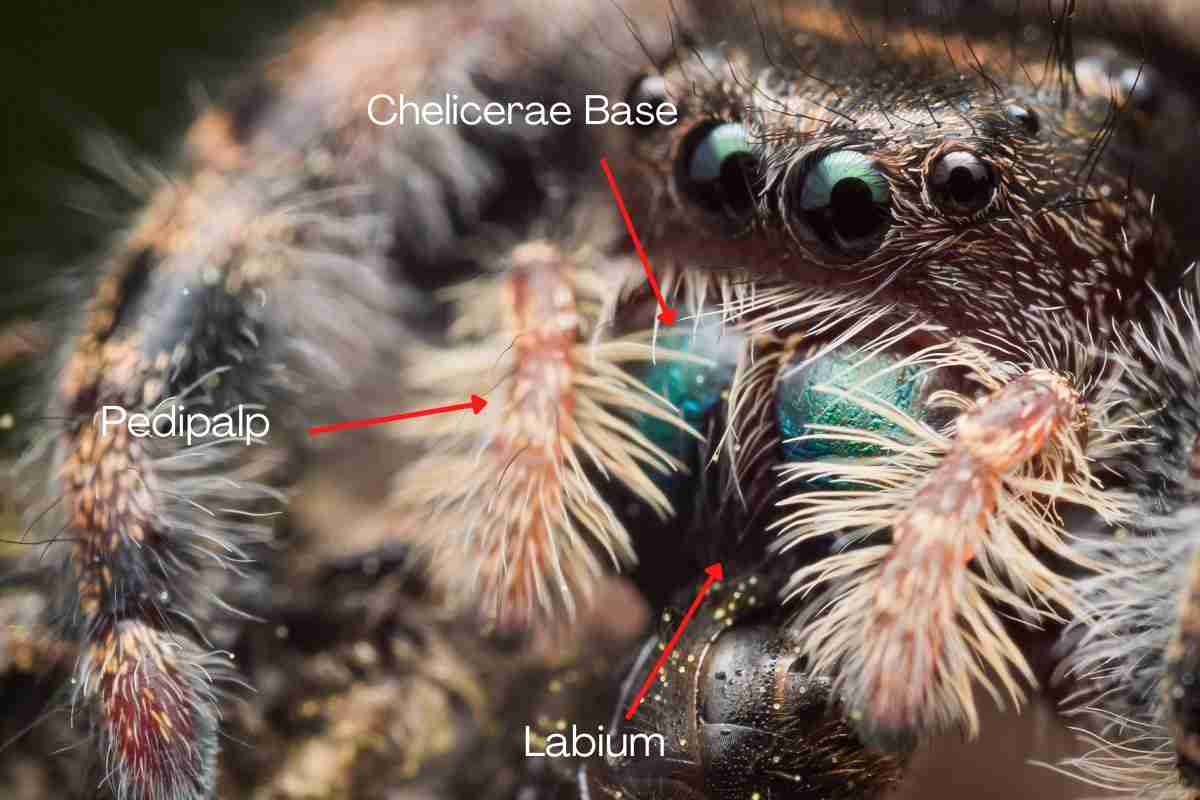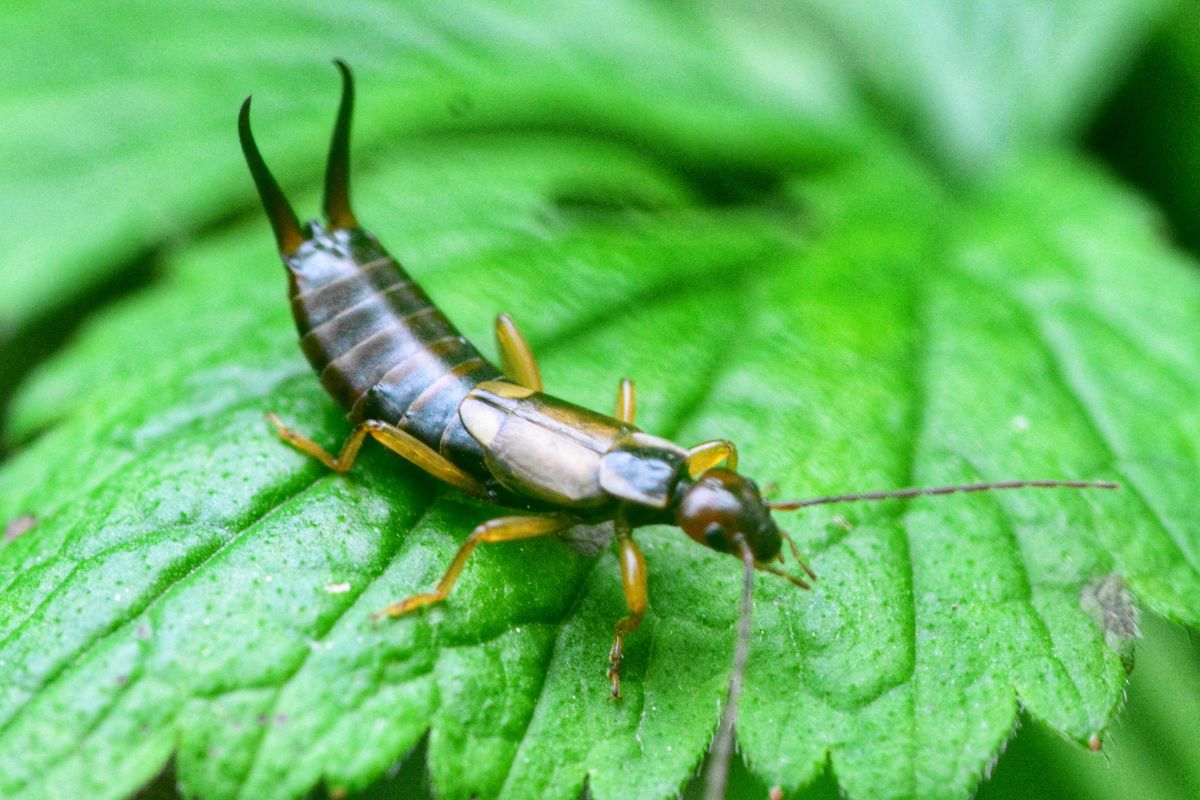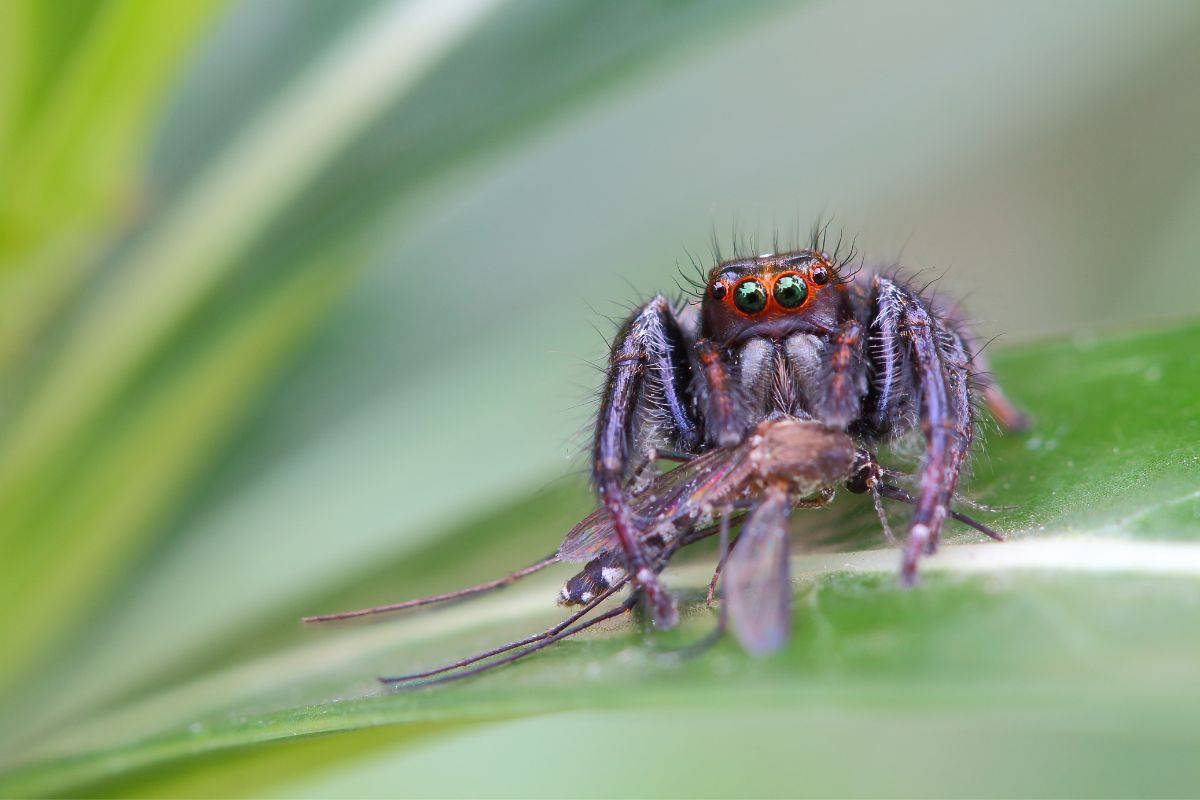Do Spiders Go In Your Ears? Debunking The Myth And Understanding Spider Behavior
Do spiders go in your ears? This question has sparked countless debates and urban legends. The idea of spiders crawling into human ears and causing harm is a common misconception that needs to be addressed. While spiders are fascinating creatures, their behavior and habits are often misunderstood, leading to fear and misinformation. In this article, we will explore the truth behind this myth and provide scientific insights into spider behavior.
Many people have heard horror stories about spiders entering ears while they sleep. These tales, often exaggerated, create unnecessary panic and anxiety. However, understanding the biology and habits of spiders can help dispel these myths and provide clarity. By examining the facts, we can separate fiction from reality and gain a better understanding of these creatures.
This article aims to provide comprehensive and accurate information about spiders and their relationship with humans. We will explore the likelihood of spiders entering ears, discuss scientific studies, and offer practical advice to alleviate fears. By the end of this article, you will have a clearer understanding of spider behavior and how to coexist peacefully with these fascinating arachnids.
Read also:Le Club 55 The Legendary Playground Of The Stars That Shaped Modern Entertainment
Table of Contents:
- Biological Overview of Spiders
- Spider Behavior and Habitat
- Do Spiders Really Go in Your Ears?
- Scientific Studies on Spider Behavior
- Precautions to Take Against Spider Bites
- Common Questions About Spiders
- Common Myths About Spiders
- The Importance of Spiders in Ecosystems
- How to Coexist with Spiders
- Conclusion: Understanding Spiders
Biological Overview of Spiders
Spiders belong to the class Arachnida and are characterized by their eight legs and two main body segments. They play a vital role in ecosystems as natural pest controllers. With over 45,000 known species, spiders exhibit incredible diversity in size, shape, and behavior. Most spiders are harmless to humans and prefer to avoid contact altogether.
Key Characteristics of Spiders
- Spiders have eight legs and two body parts: the cephalothorax and abdomen.
- They are carnivorous and primarily feed on insects.
- Spiders use silk for web-building, capturing prey, and reproduction.
- Most spiders are nocturnal and prefer dark, undisturbed areas.
Spider Behavior and Habitat
Understanding spider behavior is essential to addressing the question of whether they go into human ears. Spiders are generally reclusive creatures that avoid human interaction. Their natural habitats include forests, gardens, and other environments where they can find food and shelter. Most spiders are not attracted to human bodies or dwellings unless they provide a suitable environment for their survival.
Where Do Spiders Prefer to Live?
- Spiders typically prefer quiet, undisturbed areas such as corners, basements, and attics.
- They are drawn to areas with abundant insect populations for feeding.
- Spiders avoid light and noise, making human ears an unlikely destination.
Do Spiders Really Go in Your Ears?
The idea that spiders crawl into human ears is largely a myth. While it is theoretically possible for a spider to accidentally enter an ear, it is extremely rare. Spiders are not attracted to human ears, nor do they seek them out as a place to live or lay eggs. The anatomy of a spider makes it unlikely for them to navigate through the narrow and curved ear canal.
Why Spiders Avoid Human Ears
- Human ears emit vibrations that can deter spiders.
- Earwax has a strong odor that repels most insects and arachnids.
- Spiders prefer environments with ample space and food sources, which human ears lack.
Scientific Studies on Spider Behavior
Several scientific studies have investigated the behavior of spiders and their interactions with humans. Researchers have found that spiders are naturally inclined to avoid human contact due to their fear of larger predators. A study published in the Journal of Arachnology highlights the reclusive nature of spiders and their preference for solitude.
Additionally, studies conducted by entomologists have shown that spiders are not attracted to the human body, including ears, noses, or mouths. These findings provide strong evidence against the myth of spiders entering ears intentionally.
Read also:Katy Macfarlane The Rising Star Redefining Modern Entertainment
Precautions to Take Against Spider Bites
While the likelihood of spiders entering ears is minimal, it is important to take precautions against spider bites. Most spider bites are harmless, but certain species, such as the black widow and brown recluse, can cause adverse reactions in humans. Here are some tips to minimize the risk:
- Keep your living space clean and free of clutter to reduce spider habitats.
- Seal cracks and gaps in walls and windows to prevent spiders from entering your home.
- Wear gloves when handling firewood or working in areas where spiders may reside.
- Shake out clothing and shoes before wearing them, especially if they have been stored in a damp area.
Common Questions About Spiders
Are Spiders Dangerous to Humans?
Most spiders are harmless to humans and pose no threat. Out of the 45,000 known species, only a few are considered dangerous. Even in cases of bites from venomous spiders, medical treatment is usually effective, and fatalities are extremely rare.
Can Spiders Survive in Human Ears?
Spiders cannot survive in human ears due to the lack of food and oxygen. The ear canal is not a suitable environment for spiders to thrive in, and they would quickly perish if trapped.
Common Myths About Spiders
Throughout history, spiders have been the subject of many myths and misconceptions. Here are some common spider myths and the truth behind them:
- Myth: Spiders are insects. Truth: Spiders belong to the class Arachnida, which is distinct from insects.
- Myth: All spiders are venomous. Truth: While all spiders produce venom, most are not harmful to humans.
- Myth: Spiders intentionally seek out human ears. Truth: Spiders avoid human ears and other body parts due to their natural instincts.
The Importance of Spiders in Ecosystems
Spiders play a crucial role in maintaining ecological balance. They are natural predators of insects, helping to control pest populations. Without spiders, many ecosystems would face an overabundance of insects, leading to crop damage and disease transmission. By understanding the importance of spiders, we can appreciate their contributions to our environment.
How to Coexist with Spiders
Coexisting with spiders is easier than you might think. By adopting a few simple practices, you can create a harmonious environment for both humans and spiders:
- Learn to identify harmless spiders and avoid killing them unnecessarily.
- Use natural repellents, such as essential oils, to deter spiders from entering your home.
- Provide alternative habitats, such as gardens or outdoor spaces, for spiders to thrive.
Conclusion: Understanding Spiders
In conclusion, the myth of spiders going into human ears is largely unfounded. Spiders are reclusive creatures that prefer to avoid human contact. By understanding their behavior and habitat preferences, we can alleviate unnecessary fears and appreciate their role in ecosystems. Remember to take precautions against spider bites and coexist peacefully with these fascinating arachnids.
We encourage you to share this article with others and spread awareness about spider behavior. If you have any questions or comments, feel free to leave them below. For more informative articles about nature and wildlife, explore our website further.
Sources:
- Journal of Arachnology - "Spider Behavior and Human Interaction"
- National Geographic - "The Role of Spiders in Ecosystems"
- Entomological Society of America - "Spider Myths and Facts"


